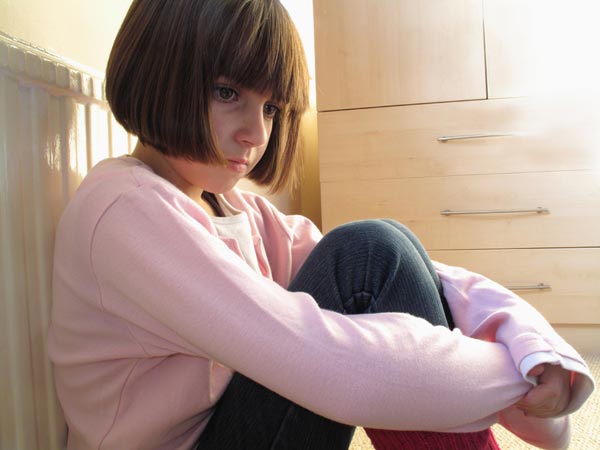Children With Mental Illnesses May Benefit From 'Shock' Therapy

Electrically stimulating the brain with so-called "electroshock" therapy may have help some children with mental illnesses including depression whose conditions are unresponsive to other treatments, according to a new study.
After receiving the therapy now called electroconvulsive therapy, or ECT, by researchers 76 percent of children showed significant improvements in their symptoms. The treatment was particularly effective for those patients with depression 17 out of 20 children diagnosed with depression showed significant amelioration.
The findings suggest ECT may be an option for severely ill patients whose illnesses haven't successfully responded to other treatments.
The researchers also said they hope to correct misperceptions people may have about the treatment.
"I think a lot of the concerns [with the therapy] have to do with a lay person's impression of ECT that it's an old and barbaric type treatment, but indeed it's not," said study researcher Dr. Laura Gilley-Hensley, of the University of Utah Neuropsychiatric Institute.
The study was presented in New York City on Oct. 28 at the American Academy of Child and Adolescent Psychiatry's annual meeting.
ECT in children
Sign up for the Live Science daily newsletter now
Get the world’s most fascinating discoveries delivered straight to your inbox.
Electroconvulsive therapy involves placing electrodes on the forehead and passing electrical currents through the brain in order to induce a seizure lasting from 30 to 60 seconds. The therapy was first used in the 1930s and gained popularity in the 1940s and '50s. In the early stages of the therapy, patients were not given anesthesia and high levels of electricity were used.
Today, patients receive anesthesia and electricity doses are much more controlled, according to the Mayo Clinic.
ECT is used mainly in adults to treat severe illnesses, such as treatment-resistant depression, schizophrenia and severe mania. Few studies have looked at the effects of ECT in children.
Gilley-Hensley and her colleagues reviewed the medical charts of 46 patients between the ages of 10 and 18 who received ECT over the last 25 years. Most had depression, depression with psychosis or bipolar disorder .
Psychiatrists evaluated the patients as showing either no improvement, moderate improvement or significant improvement in their symptoms. These evaluations were conducted by four reviewers.
Overall, 96 percent of patients showed some type of improvement in their condition. Side effects were mild and didn't last long. One of the more concerning side effects is short-term memory loss, but this is usually temporary, Gilley-Hensley said. The anesthesia used in the therapy also has its own risks.
The high rate of response may be because children were carefully selected for the therapy all children in the study were evaluated by three child psychiatrists before they were considered as candidates for ECT, the researchers said.
Selective use
Researchers noted that ECT is never used as a first line of therapy. It should only be used after multiple treatments including talk therapy, medications and hospitalization have proven to be unsuccessful, said Dr. Joan Kinlan, a child and adolescent psychiatrist in Washington D.C., who was not involved in the new study. Kinlan has used ECT in her practice, but rarely on children.
"You certainly wouldn't go immediately to ECT," Kinlan said. "But if nothing else works and the person is, for example, seriously suicidal or seriously psychotic and can't function, ECT can be a wonderful form of therapy," she said.
Kinlan said she has seen patients with severe illnesses completely recover after receiving one treatment of ECT. But she also noted that some people are not responsive to the therapy. She said she has never seen a patient suffer permanent memory loss from the treatment.
Researchers aren't sure exactly how ECT provides benefits to patients although the mechanisms of many psychiatric medications are not known either, Gilley-Hensley said. The seizures may bring about certain biochemical changes in the brain that can cause the psychiatric symptoms to resolve, she said.

Rachael is a Live Science contributor, and was a former channel editor and senior writer for Live Science between 2010 and 2022. She has a master's degree in journalism from New York University's Science, Health and Environmental Reporting Program. She also holds a B.S. in molecular biology and an M.S. in biology from the University of California, San Diego. Her work has appeared in Scienceline, The Washington Post and Scientific American.
Crop circles surround Iraq's multicolored 'Sea of Salt' after years of drought — Earth from space
Watch humanlike robot with bionic muscles dangle as it twitches, shrugs and clenches its fists in creepy video
'The parasite was in the driver's seat': The zombie ants that die gruesome deaths fit for a horror movie










